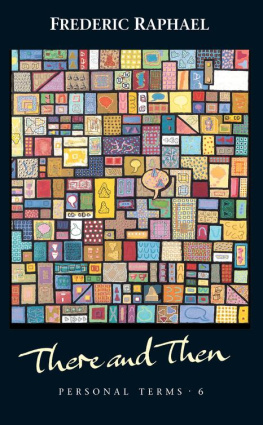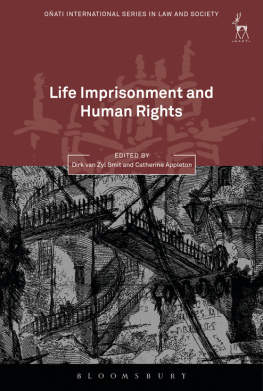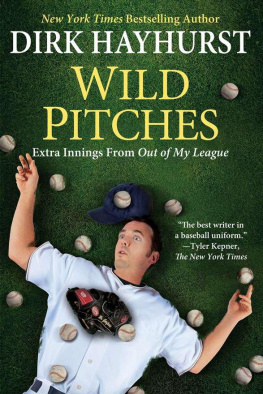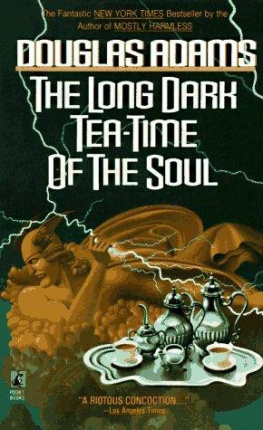Backcloth
DIRK BOGARDE

First published in Great Britain in 1986 by Viking
This electronic edition published in 2012 by Bloomsbury Reader
Copyright 1986 Badger Films
Cover image Getty Images
The moral right of the author is asserted.
Bloomsbury Reader is an imprint of Bloomsbury Publishing Plc
50 Bedford Square
London
WC1B 3DP
www.bloomsburyreader.com
Bloomsbury is a trademark of Bloomsbury Publishing plc
Bloomsbury Publishing, London, Oxford, New Delhi, New York and Sydney
All rights reserved
You may not copy, distribute, transmit, reproduce or otherwise make available this publication (or any part of it) in any form, or by any means (including without limitation electronic, digital, optical, mechanical, photocopying, printing, recording or otherwise), without the prior written permission of the publisher. Any person who does any unauthorised act in relation to this publication may be liable to criminal prosecution and civil claims for damages.
ISBN: 978 1 4482 0822 7
eISBN: 978 1 4482 0823 4
Visit www.bloomsburyreader.com to find out more about our authors and their books.
You will find extracts, author interviews, author events and you can sign up for newsletters to be the first to hear about our latest releases and special offers.
You can also find us on Twitter @bloomsreader.
Contents
This book is for Glenda Jackson,
with my love.
Memory: I scratch about like a hen in chaff.
The first thing that I can recall is light.
Pale, opaque green, white spots drifting. Near my right eye long black shapes curling down and tickling gently.
Years later when I reported this memory to my parents they confirmed it. There had, apparently, been an extraordinary pea-soup fog; it had snowed at the same time. My mother had lifted me up to observe the phenomenon; the black feathers which wreathed her hat irritated my eyes and I tried to pull them away. I was nine months old.
When I was two, I remember lying on my back on the lawn behind the house in St Georges Road. It was a brilliant day of high wind and scudding cloud. The tall house reeled away from me as the clouds whipped across the blue sky and I was afraid that it would fall down and crush me.
And later I saw our giant ginger cat well, giant to me then nailed alive to the tall wooden fence which separated us from an unfriendly neighbour. I remember my mother weeping: which frightened me far more than the sight of the dying cat for I had not yet learned to recognize cruelty or death, but I was recognizing pain and distress on a human face for the first time.
It would not be the last.
The house in St Georges Road was tall, ugly, built of grey-yellow bricks with a slate roof. It had the great advantage for my father, who was an artist, of a number of high-ceilinged rooms with a perfect north light. It also had a long narrow garden with ancient trees.
An Irish woman lived in the basement with two children and cleaned the house from time to time. She had once been a maid to the Chesterfields, who lived in a very grand house not far away called The Lodge.
Sometimes I would see her crouching on a landing with a mop or a brush. There was an almost constant smell of cooking from the basement, and my father said it was Irish stew because thats what the Irish ate.
I suppose that made sense to me at least, I have remembered it.
My father was a prudent man, with little fortune, and he let off most of the rooms in the house to artist friends, so that (apart from the prevailing smell of Irish stew) the place reeked of turpentine and linseed oil, and the mixed scent of those two is the one that I remember best and with which, anywhere I go, if I smell it, I am instantly at ease, familiar and secure.
One of his lodgers was, in fact, an artists model who had been left behind, in a rather careless manner, by an artist who had wandered off to Italy to paint. I knew her as Aunt Kitty.
Tiny, vivid, a shock of bright red hair brushed high up from her forehead, brilliant green eyes heavily lined with kohl, she was loving, warm and exceptionally noisy. For some reason, which I can no longer recall, I always seemed to see her carrying a tall glass of Russian tea in a silver holder. I never knew why or even what it was, then; and I never asked. She just did.
She had a powder puff in a red leather bag which I found interesting, for it looked exactly like a fat little bun with an ivory ring in its middle. If you pulled the ring, out came the powder puff, of softest swansdown, and the powder never spilled. It smelled sweet and sickly. I liked it.
Her room was dark nearly all the time for she hated daylight, which, she said, gave her terrible headaches. So the room was lighted here and there with small lamps draped with coloured handkerchiefs; each had a stick of incense burning beside it. The handkerchiefs cast strange and beautiful patterns on the ceiling.
There was a gold and black striped divan. Cushions in profusion tumbled all about the floor for one to sit on or lie upon. She had no chairs. I found that exceptionally curious. As I did the polar bear rug with roaring head, fearful teeth, glassy eyes and a pink plaster tongue, and the tall jars stuffed with the feathers from peacocks tails.
It was the most exciting room in the house. She also had a portable gramophone which stood on a table with a broken leg that she had supported with a pile of books. She would wind it up after each record, a cigarette hanging from her lips, hoop earrings swinging from her ears, dressed as I only ever remember her dressed: in long, rustling dressing-gowns, covered with flowers and blue-birds, bound around her waist with a wide tasselled sash. The tassels swung and danced as she moved.
On occasion she was distressed and wept hopelessly: then my mother had to go down to the scented room and comfort her. Sometimes, too, she was rather strange. Leaning across to caress my cheek, for example, she would quite often miss me and crash to the floor in a heap. I found this worrying at first. However, she usually laughed and dragged herself upright by holding on to the nearest piece of furniture.
She once told me, leaning close to my face, that she had had one over the eight, but I didnt know what she meant, and when I asked my father he bit his lower lip, a sign I knew to indicate anger, and said he didnt know.
But I was pretty certain that he did.
Her dazzling eyes, the hennad hair frizzed out about the pale, oval face, the coarse laughter, the tassels and the peacocks feathers are still, after so many years, before me and remain indelibly a part of my life.
She offered me, in that crammed room, a sense of colour and beauty, and even, although I was almost unaware of it at the time, excitement. I was uncomprehending of nearly all that she said but I did realize that she was offering riches beyond price.
First had come light; after light, scent, originally of turpentine and linseed oil (hardly romantic one might think), and now I was shown colour and, above all, made aware of texture.
Touch it! she would say. Touch the silk, its so beautiful. Do you know that a million little worms worked to make this single piece?
I didnt, of course, but the idea fascinated me. That something so fine, so sheer, so glorious should come from a million little worms filled me with amazement, and I liked worms from then on.
Sometimes she would go away, and when I asked Mrs OConnell where she had gone to she would only reply, A-voyagin. Which was no help. My parents when questioned said that she had gone on her holidays. I had an instant vision of buckets and spades, shrimping nets and long stretches of sand with the tide far out. And in consequence, knowing that she would be having a lovely time, put her from my mind.







